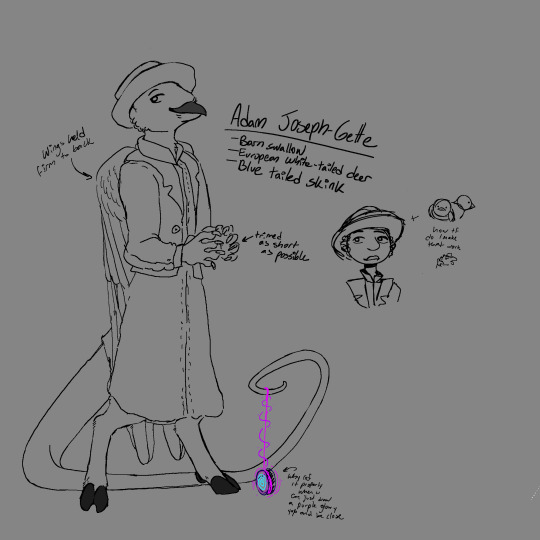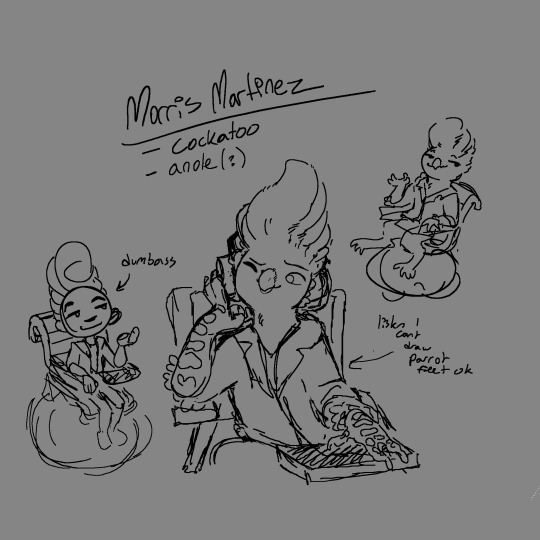#morris? i gotta tweak it i think
Text




aaaand thats the rest of the interns!
#adam joseph gette#morris martinez#norma natividad#psychonauts#psychonauts 2#my art#tbh morris and adam i didnt have crazy great ideas for but i def think adams went well#morris? i gotta tweak it i think#but roughly that#norma just took a while because she had to convince me to draw her#next up is oleander milla and sasha when i have time this week to draw them TvT
27 notes
·
View notes
Text
The USMNT should defeat Honduras, but it's natural to fear a disaster
The United States is one bad game away from missing the World Cup entirely. It’s unlikely to happen, but it’s still terrifying.
We dodge calamity every day.
We stand on corners aloof to the cars zipping by, then cross the street looking at our phones. Cities shut down as hurricanes approach, then we mock the city government’s caution when the storm peters out at landfall. In the impossibly huge expanse of the universe, asteroids that would end humanity miss our planet by an angel’s breath.
This is the state of the United States men’s national team. At this moment, it is on the edge of portentous disaster; tomorrow, we may laugh it off like there was never any danger. You should be extremely concerned about the impending apocalypse unless it doesn’t happen, in which case everything was fine all along.
If you’re just catching up — if, for example, you were not focused on international soccer in the days immediately following last November’s election — America messed up pretty bad. In the span of four days, the USMNT lost its first two World Cup qualifying matches: 2-1 to Mexico in Columbus, then 4-0 away to Costa Rica. The first match — the Americans’ first loss in a home qualifier in 15 years — was a shock, but the shutout was something else entirely: a capitulation so lethargic, disjointed, and half-assed that the four-goal margin felt generous; an effort so poor it ended Jurgen Klinsmann’s inscrutable and largely atactical reign. Bruce Arena — the architect of the U.S.’s deepest World Cup run, in 2002 — was Grover Clevelanded back into the manager’s box with a simple but serious task: right the ship, and get to the World Cup.
Ron Chenoy-USA TODAY Sports
It is not easy for the United States to miss a World Cup. In the final round of qualification (known as the Hexagonal, or Hex), the top six teams in CONCACAF play home-and-away matches against each other, and at the end of those ten games, the top three teams gain entry to the World Cup. Conveniently, there are not three teams in CONCACAF with the resources, wealth, or player pool of the United States; only Mexico has been a consistent rival this century. This is why the United States has made every World Cup since 1990, while Zlatan Ibrahimovic’s Sweden missed out in 2014. Europe, this ain’t.
It is not easy for the United States to miss a World Cup.
With some perspective, two losses to open the Hex may not seem especially dire, particularly since they came at the feet of Mexico and Costa Rica, the U.S.’s stiffest competition in CONCACAF. There is room for some failure: during the last Hex, Mexico got an uncharacteristically lifeless start, fired its manager, finished with only two wins in ten games … and made it to the World Cup anyway after winning a one-game playoff. Still, zero points from two games and a Hex-worst goal differential of minus-5 has put the U.S. in a precarious position — not apocalyptic, but dire enough to sack a manager who no longer deserved U.S. Soccer’s faith or confidence.
On Friday night, while the East Coast sleeps and the rest of American sports fans are tuned to the NCAA tournament, the United States will play its first meaningful game since the Costa Rican horsewhipping (10:30 p.m. ET, FS1). Given the changes in management and an easier set of opponents, the outlook should be sunnier before the next qualifiers. It isn’t.
The first real test of Bruce Arena’s second tenure as the national side’s coach is a must-win game against Honduras in San Jose, and he didn’t get many breaks besides a home crowd. DeAndre Yedlin, the speedy right back beloved by Newcastle fans, is injured and will miss the game, as will the next two right backs on the U.S. depth chart. Fabian Johnson, one of the team’s best and most versatile players, is out with a thigh injury, which limits Arena’s options in both defense and midfield. Midfield stalwart Jermaine Jones is suspended for yellow card accumulation (though some fans may argue that this will give a start to a more deserving player). Bobby Wood, the team’s most complete and in-form striker, will miss the game after injuring his back. One of his possible replacements, Jordan Morris, tweaked an ankle last weekend, and with Sounders teammate and strike partner Clint Dempsey still not 100 percent after missing half a year with a heart condition, the chances of Chris Wondolowski stepping onto the pitch in a meaningful game are perilously nonzero.
Mark J. Rebilas-USA TODAY Sports
Fabian Johnson, left, will not play. Chris Wondolowski, right, might. Brace yourselves.
The depleted U.S. roster will have to break through a defensive-minded Honduras side that would be thrilled to walk away with one point. Los Catrachos have been known to play with five defenders, but a parked bus isn’t the only concern: Alberth Elis and Romell Quioto pose a counterattacking danger they’ve honed as Houston Dynamo teammates, while Anderlecht’s Andy Najar has terrorized the Americans’ flank before. The U.S. maintains the edge in talent and home turf, but a tactical misstep or a few hiccups of bad luck — an unkind post, a too-quick offside flag, a giveaway in a bad spot by the fourth-choice right fullback — will be all it takes to change an easy win into something catastrophic for American soccer.
A few hiccups of bad luck will be all it takes to change an easy win into something catastrophic for American soccer.
That’s the bad news. The good news is that an asteroid hasn’t caused an extinction event for 66 million years. Which is to say: the players subbing in for the U.S.’s injured starters are typically better players than the Hondurans’ first choice. Bruce Arena has more tactical acumen than Jurgen Klinsmann. Clint Dempsey and Jozy Altidore have played up top together for seven years, and have combined for 89 goals for their country; their experience and interplay may be the key to cracking a stacked box.
Oh, and the United States has 18-year-old wunderkind Christian Pulisic, a bona fide game-changing attacker who stars for Borussia Dortmund, one of the best teams in the entire world. Since the start of what would be his senior year in high school, Pulisic has generated an 87th-minute equalizer against Real Madrid and scored the goal that sent Dortmund through to the quarterfinals of the Champions League in knockout play. Uh, I think he’ll be up to the challenge of Honduras.
"Gotta bring Pulisic along slowly. Don't want to put too much pres--"
THIS IS WHAT HE LOOKS LIKE HOLDING THE WORLD CUP http://pic.twitter.com/wGjmpXjwGG
— Matt Ufford (@mattufford) September 27, 2016
Months from now — or perhaps as soon as next week, if the USMNT play particularly well in Tuesday night’s match away to Panama — this measured hand-wringing about the grave possibility of missing the World Cup may seem quaint. (“Of course the team was going to play better for Arena! Of course the more talented team would win at home!”)
Quaint, but not foolish. Worry is the sports fan’s vaccination against loss. It familiarizes the mind with the potential disaster, lessening the damage should the worst come to fruition. It is as reasonable and practical as taping your windows when the weather report displays the pinwheel of a hurricane spinning toward you.
Better to be prepared, just in case. Better to feel the relief of dodging calamity than to never know it was there.
0 notes